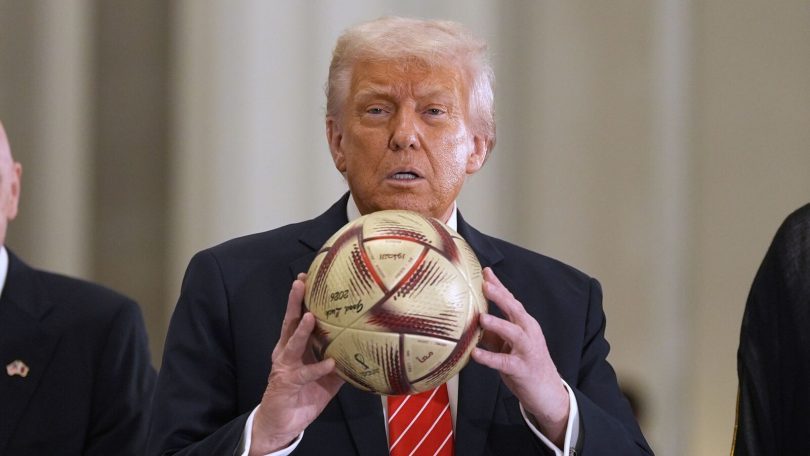Pessimism has since taken over. At a time when the US should be preparing to roll out the proverbial welcome mat to the world, President Donald Trump’s erratic immigration policies and draconian rhetoric are instead scaring tourists away.
Also Read: Trial by Trump: Ramaphosa may well have emerged stronger from the Oval Office
Stories abound of travellers with visas in hand being denied entry at the border over minor infractions or, in some cases, being held for weeks before being allowed to return home.
The World Travel & Tourism Council, pointing to the Trump administration, recently projected that spending on international trips to the US would reach only $169 billion this year, down $12.5 billion compared to 2024 and well below the 2019 peak of $217 billion.
Travel from Canada is down for the third straight month. Numerous countries, including Germany, have issued travel advisories warning their citizens to strictly follow the United States’ tighter rules for entry, or risk being detained.
Trump, however, appears unconcerned. During his visit to Qatar, where the previous World Cup was held, he insisted that next year’s tournament— billed as the largest ever, with 48 teams playing matches in the US, Mexico and Canada—is “going to be really exciting.”
Also Read: Race in Trump’s America: One step forward and two steps back
Meanwhile, his Homeland Security secretary Kristi Noem has promised that travel for tourists “will go smoothly.” FIFA President Gianni Infantino, a long-time Trump ally, has claimed that the world is welcome in America. “This doesn’t come from me. This comes from the American government,” he told the FIFA Congress.
Such empty boosterism hasn’t gone over well in LA, the US city with arguably the most at stake when it comes to sports tourism. Not only is it hosting eight World Cup matches, including the high-profile men’s opener, it’s also on the hook to host the Summer Olympic and Paralympic Games in 2028.
Planning is well underway for both mega events, which, so far, have largely been funded with sponsorship and licensing deals. However, taxpayers and the city’s depleted coffers will be on the hook if there are cost overruns, which is usually the case.
Also Read: Euro Cup 2024: Corporate boardrooms should tune into football
Of the last 14 World Cups, all but two ended up in the red for their host countries, researchers from the University of Lausanne found. And with the Olympics, most host cities usually exceed their budgets and fail to recoup their expenses. London broke even in 2012 and that was considered a success. Hotels and restaurants, flush with customers, tend to turn a profit during mega events. But with many expecting the Trump administration’s policies to act as a tourism deterrent, exactly how much profit is now in question.
This was the gist of a heated debate before the Los Angeles City Council recently, as tourism officials and business leaders objected to a plan to ramp up the minimum wage for hotel and airport workers to $25 per hour in time for the World Cup and to $30 per hour in time for the Olympics.
“An overwhelming majority of visitors from our key international markets now have an unfavourable view of the United States as a travel destination,” warned Adam Burke, president of the Los Angeles Tourism and Convention Board, citing the projected slowdown in international travel, which is already being felt in California resort towns, such as Palm Springs. “The 2025 outlook is not encouraging,” Burke added.
Also Read: Mint Quick Edit | Trump’s $5 million price tag on a US visa is no big shock
Also of concern is whether the Trump administration even has the resources to quickly process millions of applications for tourist visas, and, if so, whether it has the patience to manage the flow of fans and players repeatedly crossing into Mexico and Canada during the World Cup.
To this, US Vice-President J.D. Vance recently joked—at least, I think it was a joke—that the US wants tourists to “watch the game. But when the time is up, they’ll have to go home. Otherwise, they’ll have to talk to Secretary Noem.”
Transportation Secretary Sean Duffy, meanwhile, encouraged tourists to take a road trip, but “don’t overstay your visa.” Such comments are unlikely to inspire confidence in any would-be tourists.
As Adam Sacks, president of the research firm Tourism Economics, recently told the New York Times: “The brand of the country has taken a beating.”
It seems the bruises will show up first in Los Angeles . ©Bloomberg
The author is a politics and policy columnist for Bloomberg Opinion.










